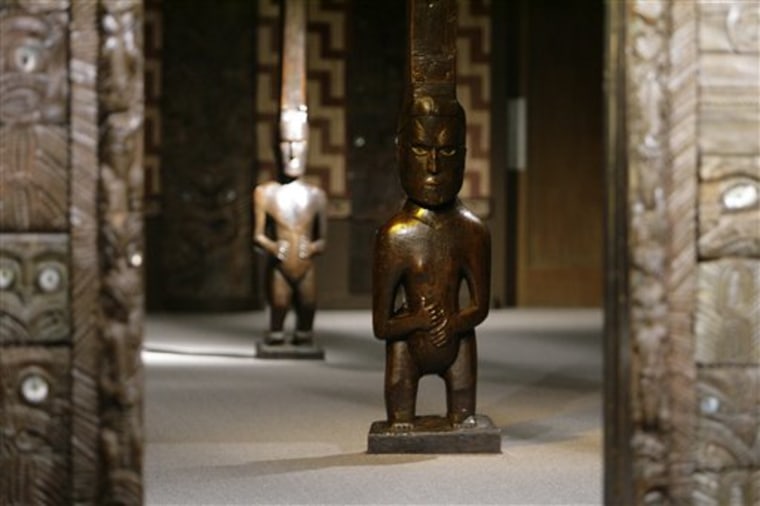The United States returned the tattooed head of a Maori and bones from 13 others to New Zealand on Monday — the latest repatriation of indigenous remains from overseas museums, a Maori expert said.
Since 2003 Maori and government agencies have worked closely on efforts to persuade museums and other collections worldwide to repatriate Maori remains back to Maori tribes, so far with mixed success. Maori believe that forebears' remains deserve full respect and care and should rest in their home area without being disturbed.
"The ancestors were welcomed back on to Te Papa's marae," the National Museum meeting place, and placed in a sacred area with scores of other returned remains, said Arapata Hakiwai, director of Maori treasures at Wellington's Te Papa National Museum.
Representatives of Maori tribes took part in the early morning ceremony, along with staff from Chicago's Field Museum, the donor, and American Indian First Nation tribal members.
Elderly women called out to the ancestral remains at the start of the ceremony, welcoming them back as the original people of the land. Bare-chested warriors performed a challenge to the foreign party to ensure they came in peace.
"For all of us a very emotional time to be returning at last the (remains) to New Zealand," Field Museum Curator of Pacific anthropology John Terrell told The Associated Press.
The Chicago museum bought the bones in 1893 from a scientific supply house in New York. Researchers once used them to compare the features of different native peoples.
Hakiwai, one of the group that accompanied the remains from the Field Museum, said the museum had "made the right decision on the right grounds — it was the right thing to do."
The Field Museum is one of the first major U.S. museums to return Maori remains, which will now be part of ongoing research to try to determine which tribal area they originated from in the 19th century. They were collected when Maoris offered mummified heads and other remains of mainly slaves in grisly exchanges for guns and other goods.
Hakiwai said his museum had acquired repatriated Maori remains from more than 30 institutions worldwide since 2003.
The museum in Chicago also has a 125-year-old carved Maori meeting house acquired in 1919, and Terrell said museum officials would meet with Maori leaders to discuss how best to help it function as a multicultural meeting place for Chicago.
Several other U.S. museums still hold Maori heads and bones, including the American Museum of Natural History, which has 35 severed Maori heads.
